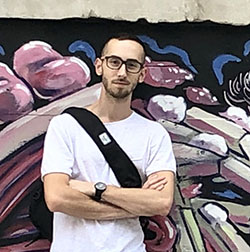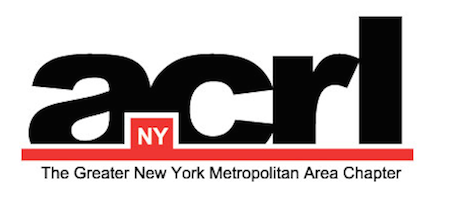By Samuel Simas 
Two weeks have passed since I was afforded the opportunity to attend the ACRL/NY 2018 Symposium: Libraries in Direct Action, and I am still energized by the work of our tenacious colleagues—particularly by the work of Nancy Godoy and Lorrie McAllister from Arizona State University, whose archival project models a sophisticated integration and mobilization of librarianship and social justice work. At Bryant University, my colleagues and I are working with our Center for Diversity and Inclusion (CDI) to make many years’ worth of materials available through our institutional repository—DigitalCommons@Bryant University. These materials will represent our Pride Center, Intercultural Center, Hochberg Women’s Center, and other University groups, which, until this project, have not been featured prominently, if at all, in our repository.
Having the opportunity to listen to the process through which Lorrie and Nancy empowered their community members to become “community archivists” provided me with new ways of talking about this kind of project to various University stakeholders while also emboldening me to think more broadly about the implications this work has on the community and communities writ large. After hearing both Lorrie and Nancy speak, it was clear to me that libraries and archives occupy a unique position to support people of diverse experiences by ensuring our resources and collections are representative of the communities we serve. Libraries and other cultural memory centers have the potential to challenge hegemonic control of sociocultural narratives and can do so by uniting our communities and encouraging our community members to contribute their voices and stories to our shared cultural heritage.
Samuel Simas is the Digital Services and Research Librarian at Bryant University. He studied at L’Université de Rennes 2 and the University of Rhode Island, where he earned his MLIS, as well as an MA in English Literature. His thesis The Men that Sleep Built is a collection of short stories that reimagines stylistic and formal structures of LGBTQ+ literature to experiment with uniquely “gay” styles of writing. In his current position at Bryant University, he promotes open access and open educational resources and gives attention to its implications with social justice, equity, and access. One of his major focuses involves the acquisition and accession of over a decade’s worth of material from the Center for Diversity and Inclusion, which will be included in the University’s institutional repository to make visible the work of diverse students, faculty, and staff throughout the University’s history. Sam lives in Providence, Rhode Island.
